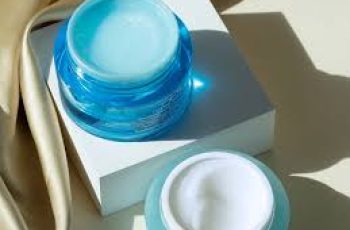
Benzene and Benzoyl Peroxide: What You Need to Know
Alarming Headlines About Benzoyl Peroxide
The skincare world is buzzing after a recent study revealed potential risks involving benzoyl peroxide. Known for fighting acne, this ingredient may break down and form benzene, a dangerous carcinogen.
This revelation is causing major concern among consumers and brands alike.
Valisure’s research found that benzoyl peroxide in some acne products can decompose under certain conditions, reacting with other ingredients to create benzene.
Benzene is classified as a Group 1 carcinogen, putting it alongside asbestos, lead, and formaldehyde. This means it’s known to cause cancer in humans.
The news has sparked calls for major skincare brands, such as ProActiv, Clinique, and Clearasil, to recall affected products.
Consumers are left wondering what this means for their daily routines and long-term health.
Understanding the Danger of Benzene
Benzene’s classification as a Group 1 carcinogen comes from decades of research showing its cancer-causing potential.
While most people associate it with industrial pollution, finding it in skincare is troubling.
The U.S. FDA allows up to 2 parts per million (ppm) of benzene in consumer products. However, the Valisure study discovered some acne treatments had benzene levels up to 12 times this limit.
Such high concentrations raise serious safety red flags.
Benzene exposure is linked to blood disorders like leukemia and bone marrow damage. Its presence in products meant for daily skin application heightens the urgency for careful regulation.
What Exactly is Benzene?
Benzene is a colorless, sweet-smelling liquid used extensively in industry. It’s a building block for plastics, detergents, and synthetic fibers.
But benzene also occurs naturally in the environment due to fossil fuel combustion.
We encounter benzene daily through car exhaust, gasoline stations, and burning coal or oil. This widespread presence makes minimizing extra exposure vital, especially in products designed to improve health.
Because benzene is both ubiquitous and hazardous, regulatory agencies closely monitor its levels in consumer goods. But finding benzene in skincare pushes for even stricter scrutiny.
Historical Precedent: The Hydroquinone Case
The skincare industry has faced ingredient safety scares before.
Hydroquinone, once popular for skin lightening, was pulled from many over-the-counter products after studies showed it could metabolize into benzene.
This past controversy underscores how ingredients once considered safe must be reassessed with new science. It also shows the industry’s ability to pivot toward safer alternatives to protect consumers.
The hydroquinone episode serves as a warning: rigorous safety testing and transparency remain essential in skincare product development.
Benzoyl Peroxide: Old Concerns Revisited
Concerns about benzoyl peroxide’s safety are not entirely new. Research dating back decades has explored whether it could cause skin damage or cancer.
That’s why dermatologists often advise washing off benzoyl peroxide before sun exposure.
Despite longstanding questions, it’s only now—with the Valisure petition—that the issue has gained widespread public attention.
This may be because the potential benzene formation is linked to specific product interactions and storage conditions.
The discovery highlights the importance of how skincare products are formulated, stored, and handled to minimize risks.
How Benzene Forms from Benzoyl Peroxide
Benzoyl peroxide decomposes when exposed to heat, light, or other chemicals. This breakdown can trigger reactions forming free benzene molecules within acne products.
These factors create a delicate balance manufacturers must manage.
Heat and sunlight are known to speed up benzoyl peroxide decomposition, which is why storage instructions matter. Leaving products in hot places or exposed to sunlight may increase the risk of benzene generation.
This chemistry reminds us how product stability is critical to safety and efficacy. It also raises questions about whether benzoyl peroxide remains the best acne treatment ingredient.
Safer Alternatives to Benzoyl Peroxide
If you’re worried about benzene risks, don’t despair. There are effective acne treatments without benzoyl peroxide.
Salicylic acid is a popular option that unclogs pores and calms inflammation without benzene concerns. It gently exfoliates skin and prevents new blemishes.
Retinoids are another alternative, promoting skin cell turnover and renewal. These derivatives of vitamin A are powerful acne fighters with extensive safety data supporting their use.
Many brands now offer benzoyl peroxide-free products that work well and avoid the benzene controversy. Exploring these options can keep your skin healthy and safe.
Benzene Rings vs. Free Benzene: What’s the Difference?
A key chemistry concept here is understanding benzene rings versus free benzene. This distinction helps clarify risk levels in skincare ingredients.
Benzene rings are stable molecular structures found in many safe organic compounds. They form hexagonal carbon arrangements and are essential to countless beneficial molecules.
Free benzene, on the other hand, is a reactive, unbound molecule that can cause cellular damage and cancer. It’s the presence of free benzene that poses health hazards.
Many skincare ingredients contain benzene rings safely integrated into their structure. The danger arises only when free benzene is present or generated.
Why Benzene Rings Matter in Skincare
Benzene rings are fundamental building blocks in organic chemistry. Their stable structure supports the creation of diverse molecules with beneficial properties for skin health.
These rings appear in antioxidants, anti-inflammatories, and UV filters, making them common in cosmetic formulations.
Understanding that benzene rings aren’t the problem helps consumers avoid unnecessary alarm. The key is preventing the formation of free benzene through careful product design.
Making Smart Skincare Choices
Navigating this benzoyl peroxide and benzene issue can be confusing. Here are tips to help you stay safe and informed:
Stay Updated: Follow reputable skincare research and news sources.
Consult Experts: Talk with dermatologists for personalized advice.
Try Alternatives: Look for products with salicylic acid or retinoids.
Know Your Skin Type: Different skin types respond uniquely to ingredients.
Store Wisely: Keep products in cool, dark places to avoid degradation.
Using these strategies empowers you to maintain clear, healthy skin without compromising safety.
The Importance of Knowing Your Skin Type
Understanding your skin type is crucial when selecting acne treatments. The 16 Baumann Skin Types system offers a detailed way to identify your unique skin needs.
Taking a free Baumann Skin Type quiz can guide you to products suited for your skin’s sensitivity, oiliness, and hydration.
Customized care reduces the risk of irritation or adverse reactions, especially when switching from benzoyl peroxide to other treatments.
What’s Next for the Skincare Industry?
This benzoyl peroxide and benzene controversy puts the spotlight on ingredient safety and product transparency. Brands face pressure to reformulate and ensure their products pose no hidden risks.
Regulatory bodies may tighten benzene limits or enforce stricter testing protocols. Consumer advocacy groups will likely continue pushing for accountability.
For users, this means staying informed and choosing products carefully. The skincare industry is evolving to meet these challenges with safer innovations.
Final Thoughts: Prioritizing Safety and Efficacy
The recent benzoyl peroxide revelations highlight how complex skincare safety can be. While benzene is a serious carcinogen, the risk arises mainly when products degrade or react.
Consumers should balance the proven acne-fighting benefits of benzoyl peroxide with emerging concerns. Using alternatives or taking precautions can help minimize any potential dangers.
Consulting dermatologists, following trusted guidance, and understanding product chemistry are smart steps toward safe skincare. Staying vigilant keeps your routine both effective and healthy.


